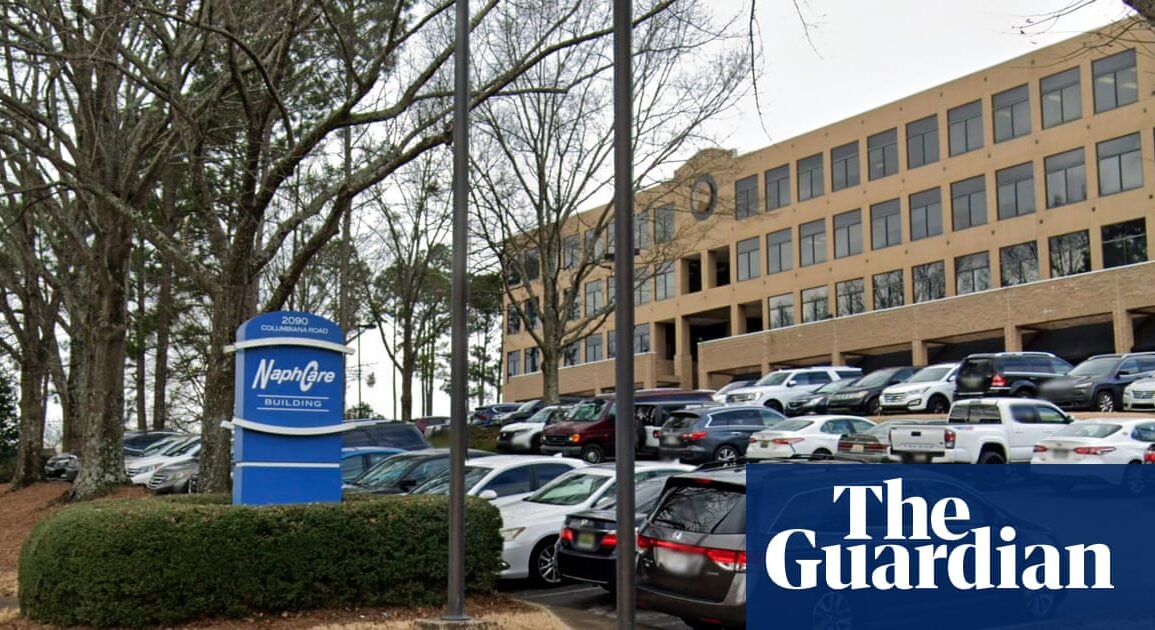
When Isaiah Trammell experienced a mental health episode while detained at Ohio’s Montgomery county jail in February last year, he pleaded for a blanket, a mat and a phone call.
He was denied them because he was on suicide precautions.
Trammell screamed and banged his head on the jail cell door. He couldn’t calm himself – the 19-year-old had autism spectrum disorder and was stimming due to the overwhelming stress of being confined in jail without access to his family or his medication. He told officers he had autism and ADHD.
In turn, they ridiculed him and told him he was behaving “like an ass”, forcibly placing him in a restraint chair twice.
Jails around the US regularly contract private healthcare companies that are oftentimes paid for by taxpayers to meet the needs of people in their care.
NaphCare, a $1bn company, has been paid tens of millions of dollars to provide medical and mental health care at the Montgomery county jail.
But they did not do that for Isaiah Trammell.
A sheriff’s office information report found that an officer requested mental health officers to speak with Trammell to “deescalate the situation”. Video footage of the 10 hours that Trammell spent at the jail showed an on-duty healthcare worker attempting to speak with him – but gave up and was quoted as saying: “OK, I’m done.”
Trammell died three days later after hitting his head against his unpadded jail cell wall. Officials ruled his death a suicide.
“The doctors, the neurosurgeon [at the hospital where he was pronounced dead] said, ‘Had we gotten your son sooner, we could have saved him,’” Brandy Abner, Trammell’s mother, said recently.
“They could have saved my son if [the nurse] would have just said, ‘He needs to be sent out.’ She didn’t care. She was so cruel. He was dying. He was begging her for help.”
Trammell’s experience forms part of a larger history of deaths, legal settlements and other substandard care issues involving NaphCare. Headquartered in Birmingham, Alabama, the company operates in dozens of jails in 32 states.
And jails where NaphCare is contracted have seen the highest death tolls compared with any healthcare provider in the country, according to a 2020 Reuters investigation. In 2022, the company was forced to pay nearly $27m to the estate of a woman in Washington state who died after being denied anti-seizure medication while in its care in a wrongful death settlement.
After a number of deaths in Massachusetts, California and Arizona, NaphCare has been penalized millions of dollars for failing to provide adequate staffing at jail facilities.
Other detainees in its care have suffered deadly cases of malnourishment and scabies.
The US justice department also found that the company overcharged jails for its services and forced it to pay back almost $700,000 in 2021.
A NaphCare spokesperson refused to answer questions from the Guardian, including why Isaiah Trammell was denied medication.
Instead, an emailed response said NaphCare’s clinical teams “provide compassionate, comprehensive and proactive health care for every patient with integrity and transparency”. The statement also said that NaphCare had staff at the Montgomery county jail “24 hours a day, seven days a week”.
“We’ve consistently adapted our service level and treatment to meet the changing needs of our patients,” NaphCare said.
NaphCare isn’t the only healthcare company accused of providing shockingly substandard healthcare. Corizon, another company contracted to provide healthcare and medical treatment at jails, has reportedly gone through corporate restructuring to form a new company, YesCare, in order to avoid paying tens of millions of dollars to creditors.
after newsletter promotion
As Corene Kendrick of the American Civil Liberties Union’s national prison project put it: “County jails get talked into the idea that somehow a for-profit company is going to take care of all of the problems and responsibilities … Inevitably what happens is you have a for-profit entity that is determined to make a profit off of their work.
“They need to be held to task to make sure they are actually providing the services that they are getting paid millions of dollars to do.”
Montgomery county jail activists are concerned that their attempts to be included in plans for a $20m renovation there – meant to include 100 medical care beds – have been ignored.
“If there will be 100 more medical beds in the renovated jail, we assume NaphCare’s contract will be expanded to include this massive increase in services delivered,” the Montgomery County Jail Coalition’s Joel Pruce said.
“We’ve asked how much it will cost. We’ve asked what additional oversight would be in place too. Considering they are such an infamous company, the idea they will have more responsibility is frightening.”
Isaiah Trammell was one of seven people who died at, or shortly after being held in, the jail in 2023. And an investigation by Ohio’s department of rehabilitation and corrections found the facility “was not compliant with several applicable jail standards”. However, the department also claimed that the jail had since enacted “meaningful” changes.
Despite the deaths and controversies, in January, Montgomery county’s local government renewed its contract with NaphCare to the tune of $7.6m.
Trammell’s mother, Brandy Abner, said her son dreamed of moving to Alaska to become a park ranger and was a fanatic of the pro wrestler John Cena.
“He was obsessed with wrestling,” Abner said. “He would learn everything about a particular animal – he wanted to be the next dog whisperer.”
But instead, she said she was left mourning the death of her teenage son due to the failure of jail nurses to do their jobs.
“They continued to let him stim for hours and hours,” she says. “My son would be alive if [they] had done [their] job.”
This post was originally published on this site be sure to check out more of their content.









